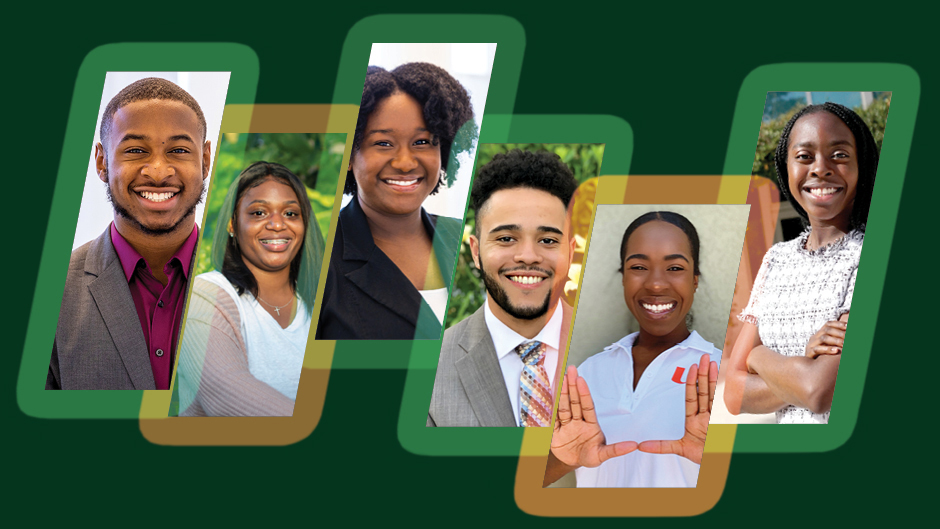For Cachay Byrd, the past couple of weeks have resulted in some of the most emotionally and mentally exhausting moments of her life. Instead of being able to invest her time and energy into school, she found herself anxiety ridden and overwhelmed by the inequality her community faces every day. Now Byrd, along with other black student leaders at the University of Miami, are asking themselves where society can go from here during these trying times.
In an effort to spark action, the Black Student Leadership Caucus, in collaboration with the Office of Multicultural Student Affairs, brought students together during a virtual dialogue Monday evening to lead a conversation on how the University community can create change.
“Today we celebrate our taken brothers and sisters with endeavoring solidarity. These are trying times which scare even the brightest among us,” said Miles Pendleton, the event moderator and UM NAACP chapter president. “Let us allow this solidarity to lift our spirits and guide us forward in the days, weeks, and years to come.”
Landon Coles, United Black Students president, opened the discussion explaining how society is now facing an entirely different challenge where outward discrimination has been replaced by implicit bias, and discriminatory policy has been substituted by complacency and silence. He hopes to overcome this obstacle with unfiltered advocacy in his new role.
“The time for change is now. United Black Students will continue to remain at the forefront of advocating for our black faculty, staff, and students in our community. It is within our history and ingrained in our DNA to overcome this with great poise. I have every intention to ensure that we have an active voice in the University community, not just a passive one,” he said.
During the conversation, Abigail Adeleke, Student Government president, proposed several ideas that would strengthen morale at the University, including the need for comprehensive diversity and sensitivity training for all faculty, staff, and students.
“Words have so much power. They have the power to destroy and alternatively the power to build. We all have a part to play in learning how to better interact with one another. We, the ’Cane community, have a duty to uplift our fellow ’Canes during this time,” said Adeleke.
She hopes to create more safe spaces, like this current discussion, to help communicate how students envision positive change for the University.
“I love this community and I absolutely love being part of the ’Canes family. But, like every family, we have our struggles, and we could only get through them when we make a conscious effort to fix them,” she explained.
Although Doreen Gustave said her heart aches as she reflects on events that have happened over the last few weeks, she said she has never felt prouder to be black.
“This is not where the fight ends. We will continue to protest and continue to fight for what we think is right,” said Gustave. “As a black student leader, I will not be silent. And I will use every space I occupy to have our voices heard. It’s no longer about me or you, it’s about all of us. We’re a unit and we must be united.”
As the first black president of The President’s 100, the student ambassadors for the Office of Undergraduate Admission, Gustave said she will use her standing to educate others.
“I plan to be intentional on who I bring into the organization and make sure that every group or person is represented. I want every student who is applying and coming to visit campus to feel welcome and feel like they belong and know that their voices will be heard when they tour our campus,” she said.
Zoria Telfare, chairwoman for the Homecoming Executive Committee, said she is extremely thankful to be a leader and have the ability to utilize her platform to invoke positive change on campus.
“The other panelists and I are leaders who stand united to have reform within our community, but we can’t do it by ourselves,” Telfare explained. “There is a need for more black student leaders who will use their platforms to build a better community for students who come after us. We also need more faculty and staff who are going to be part of the change with us.”
Byrd used the conversation to send a positive message to those who are struggling during this time.
“I sit here to tell you that everything you visualized, intended, and prayed about is manifesting. I urge you all to remain centered and at peace with yourselves, knowing that even the smallest voice among us has indeed been heard,” she said. “I urge you to stay steadfast in the pursuit of your education and be strong and continue to believe in justice because, it’s all about to happen.”

